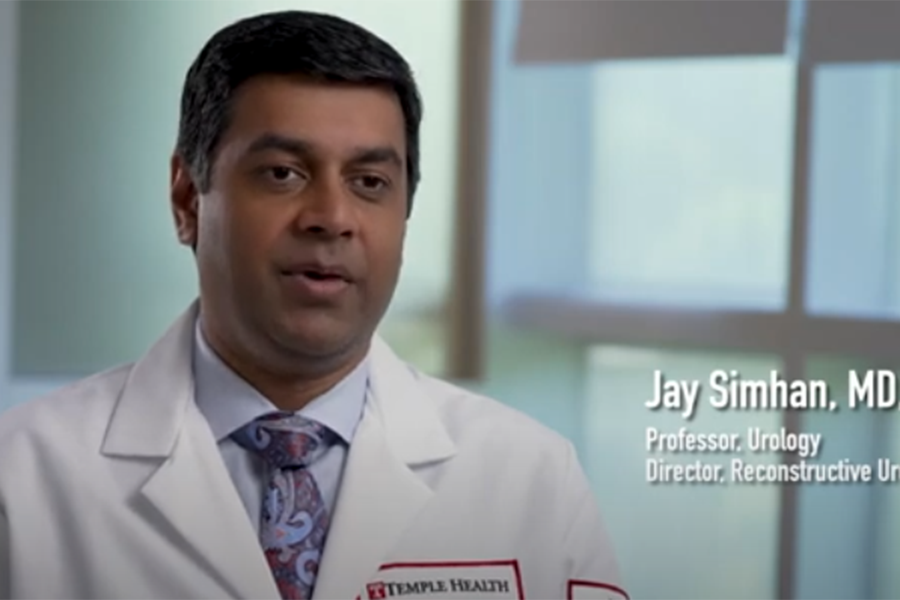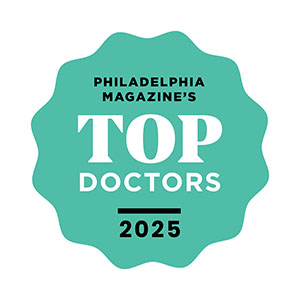Clinical Interests
- Complications from urologic cancer treatment
- Urethral stricture disease
- Penile implant surgery
- Male anti-incontinence surgery
- Peyronie’s disease
- Open and robotic urinary tract reconstruction
- Genitourinary trauma/injury
- Revision male urologic prosthetic surgery
Research Interests
- Pain management in urologic surgery
- Patient reported outcomes of urethral reconstruction surgery
- Surgical technique innovations for penile implantation and urethral reconstruction
- Multi-institutional collaborative research on urinary reconstruction and male prosthetic surgery
Education
- MD, The University of North Carolina at Chapel Hill, Chapel Hill, NC
Training
- Fellowship, Urologic Reconstruction/Prosthetics, UT Southwestern Medical Center, Dallas, TX
- Residency, Temple University Hospital, Philadelphia, PA
Board Certifications
- American Board of Urology
Memberships
- American Urologic Association
- American College of Surgeons
- Mid-Atlantic Section of the American Urologic Association
- Philadelphia Urologic Association
- Société Internationale d’Urologie (SIU)
- Society of Genitourinary Reconstructive Surgeons
- International Society for Sexual Medicine
- Sexual Medicine Society of North America
- Society of Urologic Prosthetic Surgeons
- International Society of Reconstructive Urologists
Awards and Honors
- Top Doctors, Urology, Philadelphia Magazine, 2024-2025

About
As a reconstructive urologist, I surgically manage the functional restoration of all urologic organs – specifically, the kidneys, ureter, bladder, urethra, and penis. My interest in becoming a reconstructive urologist arose from my desire to beneficially impact a patient’s quality of life. Many of the patients I see have quality of life problems from a cancer treatment itself. Indeed, the purpose of such cancer treatments are to extend a patient’s lifespan; my focus, specifically, is to optimize a patient’s quality of life.
A large aspect of my practice also manages patients with benign (non-cancerous) reconstructive problems. Although many urology treatments for benign conditions are straightforward, a small proportion of patients do not have a successful outcome and thus see me for a second opinion. I do not take for granted the honor and privilege of seeing such patients and creating a surgical plan with a patient that has experienced a prior unsuccessful outcome.
I am fortunate to have developed a clinical practice that routinely reaches over state lines. To be mindful of this, I have taken great efforts to minimize long trips back and forth to my office, and I instead earnestly attempt to provide patients with the most information about their problem in a consolidated manner. I believe each patient should be treated uniquely with careful attention placed towards their medical history and any nuances in their medical examination.
Throughout my career, I have actively participated in medical research and serve as a reviewer for most, if not all, of the most relevant urology-based journals in the literature. My publications focus on urinary reconstruction, urologic prosthetics, and urologic injury and have several hundred publications and abstracts that I have helped lead. I have been invited to lecture regionally, nationally and internationally on all topics related to urologic reconstruction and I am an active member of numerous reconstructive based international organizations. I believe that being an active researcher allows me to offer patients the most up-to-date treatments for their reconstructive problem.
As one of few Urologists in the country that has a practice wholly dedicated to urologic reconstruction, I have one of the largest experiences in managing abdominal and urethral reconstruction along with urologic prosthetics in the country. For patients in need of abdominal reconstruction of the kidney, ureter, and/or bladder specifically, I am also one of very few reconstructive urologists that has a robust experience in managing patients through either open, laparoscopic, or robotic approaches.
Urologic reconstruction is one of the most dynamic fields in Urology. I appreciate the responsibility I have been given to caring for patients with complex problems and understand that those often suffering from quality-of-life problems are most of all hopeful for a better life. I hope to bring a level of satisfaction for each patient and their families by working together to reach that goal.



Patient Comments
Excellent
TUHS and its MDs and staff are simply excellent
Good
Very Professional
I feel very confident that the entire team at fox chase is the best care I can receive.